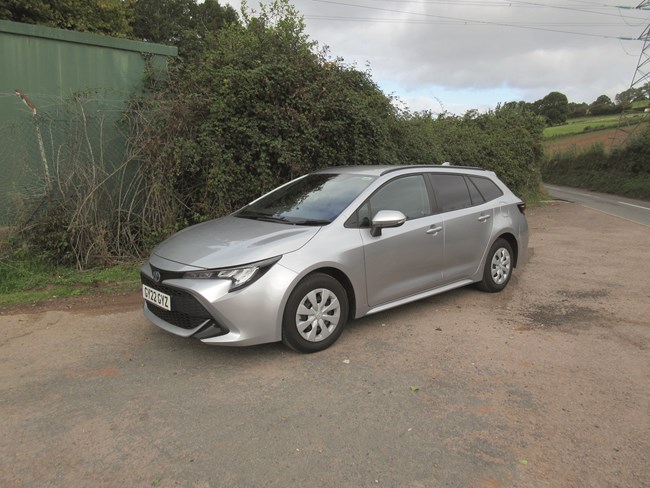- ETRUX launches new Ford E-Transit Trizone
- Renault gives UK debut to Master E-Tech at CV Show
- Isuzu D-Max long-term test – Latest Report
- Isuzu D-Max V-Cross Steel Edition revealed
- IVOTY Report: Stellantis explores the hydrogen proposition
- New Maxus EVs include eDeliver 5 van
- Used LCV values reach six-month high
- ADVERTISEMENT FEATURE: IVECO Daily Mission Awards 2024 Q2 Round-up: Grounds Maintenance & Forestry
- Stellantis Pro One electric vans review
- Mitie adds 5,000th EV to fleet
The What Van? Road Test: Toyota Corolla Commercial (2022)
Date: Friday, November 18, 2022

Whatever happened to the hatchback car-derived van? Go back a few years and every mainstream manufacturer had one in its portfolio, with models such as Ford’s Fiesta Van marketed as handy runabouts. Today the genre has all but vanished.
Its disappearance is largely the consequence of the steady rollout of compact purpose-built vans such as Ford’s own Transit Courier. They offer more space and payload capacity than a car-derived van, and the load area tends to be much easier to access.
There is also the point that car-derived light commercials, though seemingly ubiquitous, seldom sold in vast numbers. So why persevere with a product that will never net you significant sales?
One or two manufacturers reckon that there is still mileage in the breed however. Car-derived models are usually fairly compact and therefore easy enough to park, and do not stick out like the proverbial sore thumb on a suburban driveway.
Leading the car-derived van charge at present is Toyota. In effect the heir to Vauxhall’s much-missed Astravan, its five-door Corolla Commercial comes with a clever twist which could give it an advantage in the marketplace.
It is a self-charging hybrid which can run on zero-emission battery power, but can switch to a combination of petrol and battery power as and when required. Its ability to charge itself means there is no need to go to the bother of plugging the battery into a charging point.
Derived from the Corolla Touring Sports 1.8 Hybrid car, the newcomer has undoubted environmental credentials. However the presence of a petrol engine dispels the range anxiety still often associated with pure battery-electric vans.
Designed and built in Britain at Toyota’s Burnaston, Derbyshire factory, Corolla Commercial comes with a single level of specification and quite a high one at that. So how did we cope with what is undoubtedly an unusual vehicle?
View The WhatVan Digital Edition


